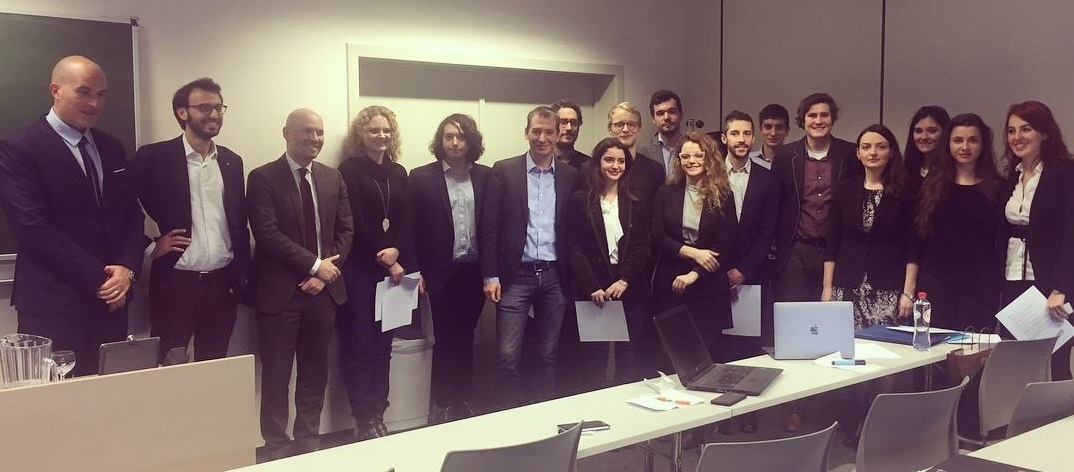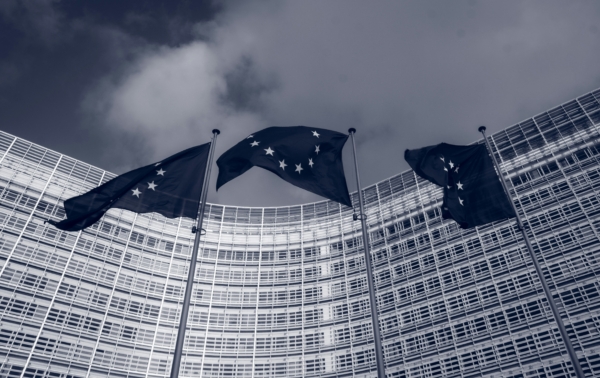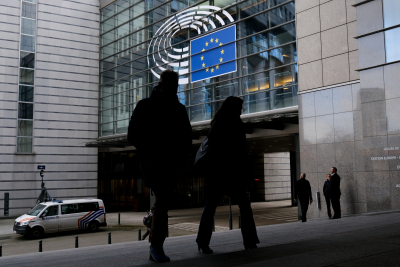As an extracurricular activity at the College of Europe, the students of the 2017-18 Simone Veil promotion* have organised a Transparency Group in close cooperation with the EU Office of Transparency International. Here, we showcase the policy papers the students have prepared.
In its third year, the “Transparency Group” of the students at the College of Europe in Bruges has made some significant steps, including a new page on social media with its own corporate design, movie screenings, “transparency lunches”, a dedicated conference at the College in January, and policy papers prepared as team assignments, analysing a number of topics and institutions relevant in the fight against corruption in Europe and for transparent and democrati EU governance.
As every year, the recent graduates will soon crowd the offices and corridors of Brussels EU quarter, and we hope that their work with the Transparency Group will have given the students some insights into the workings of civil society in the Brussels bubble, and enable them to make a difference in the pursuit of their careers.
The discussion on the future of Europe is picking up, and just like Transparency International EU, the students have specific ideas on how to improve the European Union, be it via the introduction of EU-wide whistleblower protection, country by country reporting of the taxation of multinational companies, EU party financing, or their scrutiny of one of the EU’s watchdog institutions, the European Court of Auditors.
At the end of the academic year, the best anti-corruption or transparency-themed Master’s thesis at the College of Europe will receive the Transparency International thesis prize. The prize consists of a scholarship, accommodation and travel to attend the Transparency International School on Integrity (TISI), TI’s annual summer school gathering young anti-corruption professionals from across the world, in July of each year in Vilnius, Lithuania.
*Simone Veil Promotion refers to the 2017-18 intake of students at the College of Europe, which names each yearly intake (French: promotion) after famous figures in European thought and integration.
Bridging the Transparegncy Gap of Euro-party Financing [PDF]
As the 2019 European Parliament elections draw closer, the statute of EU-level political parties (Euro parties) is once again up in the air. In September the European Commission presented a proposal for reforming the 2014 regulation on the statute and funding of European political parties and foundations, only nine months after it started to apply. After repeated calls by the European Parliament (EP) to address a series of weaknesses, the Commission’s intention is now “to close the loopholes, improve transparency, to ensure the appropriate allocation and expenditure of limited resources from the EU budget, and thereby to strengthen the genuine electoral representation of European citizens by European political parties”.
The ‘Panama Papers’ and ‘LuxLeaks’ revelations (…) have shown the urgent need for the EU and its Member States to fight tax evasion, tax avoidance and aggressive tax planning, and to act for increased cooperation and transparency in order to re-establish tax justice, by making our tax systems fairer and ensuring that corporate taxes are paid where value is created, not only among Member States, but also globally ». This quote from a European Parliament resolution of 2016 explicit the current state of play regarding tax evasion, this issue having acquired even more importance with the 2017 “Paradise Papers” scandal. Vocabulary is important in these fields: aggressive tax planning can be described as the practice of taking profit of inconsistencies generated by the existence of divergent national tax regulation; profit shifting can be defined as an allocation of income between entities of the same group in order to lessen the tax liability of this group.
In the past, whistle-blowers have provided a valuable source for tracking and reporting wrongdoing. Incentive structures and protection once they “blow the whistle” can therefore play a crucial role in preventing corruption in the private and the public sector and can be of great help for authorities to detect and discourage violations.
Protecting whistle-blowers in the public sector facilitates the detection of misuse of public funds, waste, passive bribery, fraud and other corruption forms. Protecting them in the private sector facilitates authorities to identify active bribery, corruption activities committed by businesses and helps companies detect and therefore prevent corruption in commercial transactions. Protection of whistle-blowers also occurs to be fundamental for the preservation of the public interest and the generalisation of a culture of transparency and integrity. Despite the importance of protecting
whistleblowers, legislation on their protection remains the exception rather than the rule in the EU. The majority of Member States do not have legislation on whistleblowers protection and the few countries that actually do, have confusing laws that are not always applied. Result being that citizens remain largely unprotected if they decide to report wrongdoing, facing the risk of being fired, jailed or risking judicial proceedings. The potential of fighting practices such as fraud, corruption and other wrongdoings is therefore lost.
Watching the Guardians: The European Court of Auditors in light of transparency [PDF]
Spending public money is highly controversial since central administrations decide on communal budgets – actors issuing public budgets must be hold accountable for how they spend it. On the European level, the Court of Auditors is in charge of carrying out this task. In practice, the ECA describes its function as an “independent guardian of the financial interests of the citizens of the Union” (Website ECA, 2018). Thus, the Court of Auditors investigates if the European budget was issued the way it was supposed to be spent. Therefore, it holds the executive actors accountable for their budgetary actions. Since “transparency is a sustaining element of accountability” (Auditor General of Canada, 2002, p.7), the latter cannot be implemented, before having created the previous one. At the same time, the ECA does not only rely on transparent structures, it also creates them. Additionally, it is equally important to question the transparency of the institutions itself. Given those observations, this paper aims to raise relevant issues regarding the ECA in light of transparency. It aims to provide a descriptive starting point for further research rather than an in-depth study. Thus, the goal is to raise relevant questions in explaining processes within the ECA.







